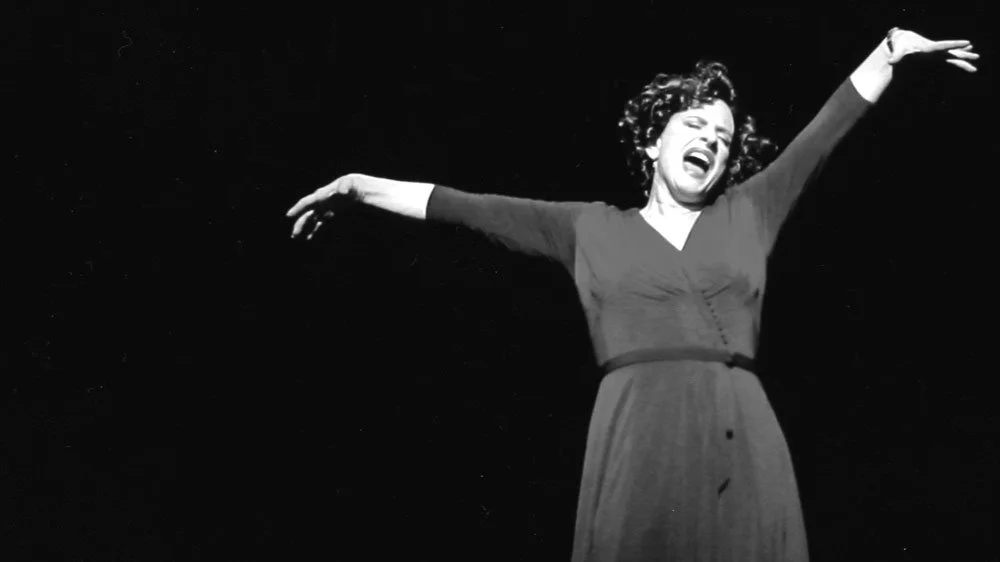Reconciling Art & the Artist in the Wake of Patti LuPone's Controversy
Patti LuPone
by Chris Peterson, OnStage Blog Founder
We all have that person. The voice that raised our pulse. The performance that gave us goosebumps. The actor who made us fall head over heels in love with the stage. And sometimes, heartbreakingly, that person ends up disappointing us.
Welcome to the latest round of “what do we do when our faves act like jerks or worse,” featuring none other than Broadway royalty Patti LuPone. Yes, that Patti. The one with the pipes of steel, the eyebrow-raising interviews, the stop-the-show stage presence. She’s made a career out of being a no-nonsense diva with a sharp tongue and an even sharper belt.
But in 2025, it turns out that act doesn’t play quite the same.
In a New Yorker profile that should have been a celebration of a legendary career, LuPone instead chose to swing at her colleagues like she was in a backstage brawl. She referred to veteran actress Kecia Lewis as a “bitch,” questioned her résumé, and diminished her concerns about the noise complaints LuPone made regarding Hell’s Kitchen, the show playing next door. A show led by a Black cast. A show that Kecia Lewis, an incredibly respected performer with decades of credits, was a part of.
And LuPone didn’t stop there. When asked about Audra McDonald, who had shown public support for Lewis with a few quiet emojis, LuPone sneered, “She’s not a friend.” She dismissed Audra. Audra. Six-time Tony winner. National treasure. The Beyoncé of Broadway. Just tossed her aside like an understudy in a matinee.
Now, some folks think this is all just part of Patti’s schtick. That’s what she does, right? She’s blunt, she doesn’t suffer fools, she calls it like she sees it. And for years, that made her compelling, even charming, in a chaotic kind of way.
But here’s the thing. When “telling it like it is” becomes bullying, when confidence becomes cruelty, and when your brand of brutal honesty punches down instead of up, we have a problem. This isn’t just diva behavior. It’s dismissive, mean-spirited, and deeply out of step with what we claim to value in theater, a community of respect, inclusion, and collaboration.
So now we’re stuck in that uncomfortable place. How do we hold space for the work we love while holding the artist accountable for harm?
There’s no perfect answer. Some folks choose to separate the art from the artist. They say, “I can still love Evita or Company or her version of Mama Rose without co-signing the behavior.” And to an extent, that’s fair. Patti LuPone didn’t make those musicals alone. Incredible directors, composers, writers, and casts helped build those shows, and it feels cruel to throw their work out with the diva bathwater.
But others can’t make that split, and I respect that too. For some, hearing LuPone’s voice now comes with a sting. Watching her sing “Everything’s Coming Up Roses” doesn’t inspire, it unsettles. That’s valid. Art is personal, and how we engage with it is personal too.
I think the answer, if there is one, lies somewhere in the middle. We don’t need to erase Patti LuPone’s contributions to Broadway history. But we also don’t need to pretend she didn’t say what she said. We can acknowledge the brilliance of her performances and also say she was wrong. She was unkind. She hurt people. Also, people were unkind to her. People hurt her.
We can love what someone did without loving how they’re behaving now. I should also mention that, for me, this is a case-by-case basis depending on what acts these people have done. I will never give folks like Ben Vereen and Kevin Spacey that grace.
And we can and should choose to uplift the artists who are making theater better. Artists like Kecia Lewis, who showed grace and strength in telling her story. Artists like Audra McDonald, who used a few quiet emojis to say, “I see you, and I believe you.” That’s the kind of leadership we need right now, not the kind that screams from the rafters, but the kind that makes room for everyone at the table.
Theater is at its best when it challenges, when it heals, when it unites. And sometimes, that means taking a hard look at the legends we once worshipped and asking if they still deserve the pedestal.
Patti LuPone gave us brilliance. She also gave us this moment. A moment to reflect, to question, and to grow. Let’s take it.
UPDATE: The Patti LuPone Controversy: When Broadway Fandom Becomes Blind Worship
